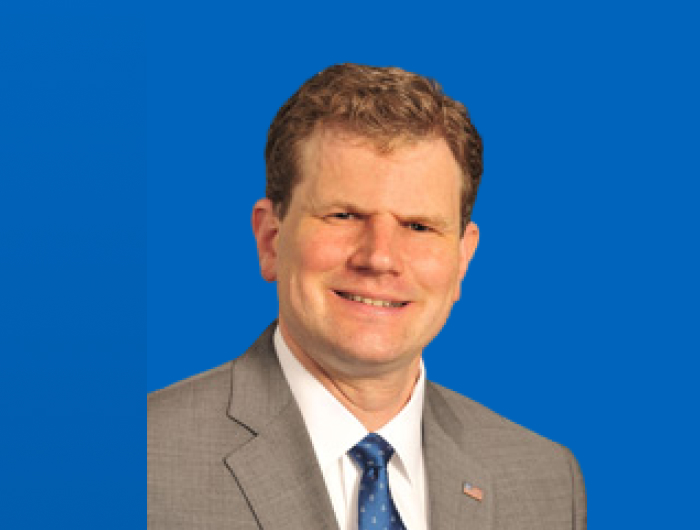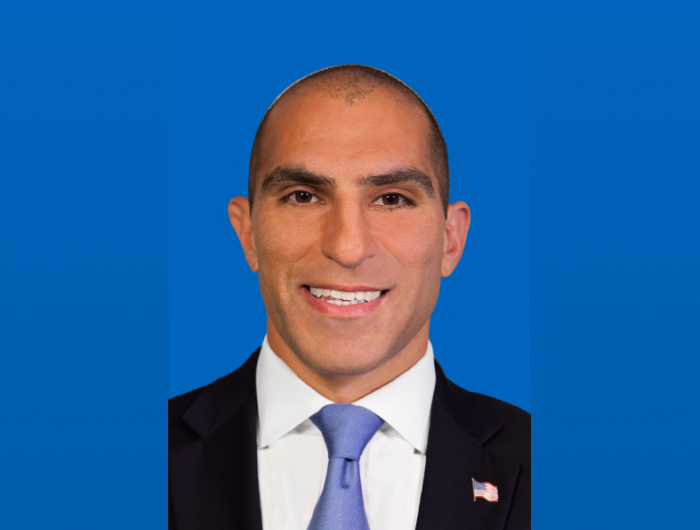White House
Competition Council
“Capitalism without competition isn’t capitalism; it’s exploitation. Without healthy competition, big players can change and charge whatever they want and treat you however they want.”
President Biden
For decades, corporate consolidation has been accelerating. In over 75% of U.S. industries, a smaller number of large companies now control more of the business than they did twenty years ago.
That lack of competition drives up prices for consumers and drives down wages for workers.
Families are paying higher prices for necessities—things like prescription drugs, hearing aids, and internet service. And when there are only a few employers in town, workers have less opportunity to bargain for a higher wage and to demand dignity and respect in the workplace. In total, higher prices and lower wages caused by lack of competition are now estimated to cost the median American household $5,000 per year.
President Biden signed a historic Executive Order to establish a whole-of-government effort to promote competition in the American economy.
Here are the actions that the administration has already taken to-date to increase competition and deliver concrete benefits to America’s consumers, workers, farmers, and small businesses:
Competition in Healthcare
- The Federal Trade Commission announced a final Eyeglass Rule, which includes an update to require doctors to request a patient’s signature confirming that the patient received their prescription and to maintain a record of confirmation, promoting competition and consumer choice.
- The Department of Justice launched a Task Force to address collusion and monopolistic practices in the health care market.
- The Federal Trade Commission disputed more than 300 junk Orange Book patent listings that artificially keep prices high as improper or inaccurate.
- The Center for Medicare & Medicaid Services finalized a rule to set minimum staffing standards for long-term care facilities, holding nursing homes accountable and protecting both healthcare workers and patients.
- The Department of Justice, Federal Trade Commission, and the Department of Health and Human Services launched a new one-stop shop portal, healthycompetition.gov, to give consumers an accessible point to submit complaints.
- President Biden highlighted actions his Administration is taking to lower the costs of inhalers, including the Federal Trade Commission’s recent asthma inhaler patent dispute amicus brief.
- HHS, DOJ, and FTC issued a request for public input to better understand the impact of corporate ownership and private equity on health care.
- The Federal Trade Commission and the Department of Health and Human Services issued a joint RFI seeking comments regarding market concentration of large Group Purchasing Organizations and wholesalers and how these healthcare middlemen may influence pricing and availability of pharmaceutical drugs.
- Reforming its organ transplant system, the Department of Health and Human Services issued RFPs in advance of executing multiple award contracts for the first time and plans to issue new data reporting requirements to improve efficiency and equity in its transplant waitlist process.
- The Department of Health and Human Services and the Center for Medicare & Medicaid Services released an RFI on Medicare Advantage to seek input on how the agency can increase transparency, promote healthy competition, and identify adverse effects of vertical integration in Medicare Advantage markets.
- The Center for Medicare & Medicaid Services released ownership data on Federal Qualified Health Centers to promote transparency and competition among health centers.
- The Department of Commerce and Department of Health and Human Services released a proposed framework for agencies on the exercise of march-in rights that specifies for the first time that price can be a factor in determining that a drug or other taxpayer-funded invention is not accessible to the public.
- The Department of Health and Human Services took steps to strengthen the Medicare Advantage and the Medicare Prescription Drug program by proposing a rule to prevent people on Medicare from being steered into plans with excessive compensation to agents and brokers rather than to plans that serve their best interest.
- The Department of Justice, the Federal Trade Commission, and the Department of Health and Human Services released a Request for Information to examine the role of private equity and corporate influence in healthcare markets.
- President Biden signed a bipartisan law to reform the organ transplant system, breaking up the current monopoly system and harnessing competition to allow The Department of Health and Human Services to contract with the best entities to provide a more efficient system with best-in-class technology, processes, policy, and people.
- The Federal Trade Commission issued a unanimous policy statement, supported by the Food and Drug Administration, warning pharmaceutical companies that they could face legal action if they improperly list patents in the FDA’s catalog of “Approved Drug Products with Therapeutic Equivalence Evaluations,” commonly known as the “Orange Book,” a practice that can hinder competition from less expensive generic alternatives, increasing costs and impeding accessibility.
- The Department of Health and Human Services announced a set of new steps to crack down on nursing homes that endanger resident safety, including a proposed rule from the Centers for Medicare & Medicaid Services to set a federal floor for staffing levels, providing residents with a higher quality of life.
- The Department of Commerce published a final rule on march-in rights that does not include any provisions that would have prohibited the government’s use of march-in solely on the basis of product pricing. DOC and HHS announced a joint effort to produce a whole-of-government framework around exercising march-in right provisions.
- The Departments of Justice and Health and Human Services signed a memorandum of understanding, strengthening the partnership between the two agencies in an effort to protect competition in healthcare markets.
- The Federal Trade Commission proposes updating the Eyeglass Rule to ensure doctors automatically provide patients with a copy of their prescriptions immediately after an eye exam.
- The United States Patent and Trademark office and the Food and Drug Administration announced a public listening session to seek input on proposed collaboration between the two agencies to promote competition and greater access in the prescription drugs market.
- The Department of Health and Human Services is publishing data about who owns Medicare-certified nursing homes, enhancing the ability to identify common owners and those with a record of poor performance.
- The Food and Drug Administration issues final rule to make hearing aids available over-the-counter, expanding access and saving Americans an estimated $2,876 per pair.
- The U.S. Patent and Trademark Office and FDA announced it would take actions to scrutinize drug patents that are driving up prices.
- The Department of Health and Human Services is publishing data about who buys and sells hospitals and nursing homes to enable researchers, law enforcement, and the public to better understand the impacts of consolidation.
- The Department of Health and Human Services announced an ambitious new package of nursing home reforms that will stop predatory corporate owners from maximizing their profits at the expense of vulnerable residents’ health and safety.
- The Department of Health and Human Services issued proposed rules to improve the affordability and accessibility of hearing aids by making them available over the counter at pharmacies and other regular retail stores.
- The Department of Health and Human Services published a report explaining the Administration’s plan to lower the price of prescription drugs for millions of Americans.
- The Department of Health and Human Services proposed a rule to crack down on hospitals that fail to disclose their prices, increasing the fine for failure to report prices nearly twentyfold.
- The Department of Health and Human Services is helping states develop plans to import lower-priced drugs from Canada.
- The Food and Drug Administration began collaborating with the Patent and Trademark Office on ways to improve the patent system to increase access to safe, affordable prescription drugs.
Competition in Labor Markets
- The Federal Trade Commission finalized a ban on non-competes, a move that will benefit 30 million workers, spur the creation of an estimated 8,500 new businesses annually, improve worker mobility, and encourage innovation.
- The Department of Labor proposed a rule to enhance the National Apprenticeship System by modernizing regulations for Registered Apprenticeships. Among other important changes, the rule would prevent apprenticeship sponsors from imposing non-compete provisions that would restrict an apprentice’s labor market mobility.
- The Department of Labor and Federal Trade Commission signed an agreement to strengthen their ability to work closely together on competition issues in the U.S. labor market, including cross-training staff, sharing information, and partnering on investigative efforts, bolstering both agencies’ ability to combat unlawful and anti-competitive behavior.
- The Department of Labor’s Occupational Safety and Health Administration published an interim final rule which would provide antitrust whistleblowers additional protection against retaliation by establishing clearer procedures and timeframes for handling employee retaliation complaints under the Criminal Antitrust Anti-Retaliation Act.
- The Federal Trade Commission proposed rulemaking that would ban employers from imposing non-competes on their workers, which impacts an estimated 30 million workers and could increase wages by nearly $300 billion per year.
- The US Department of Labor ran its second annual Summer Data challenge for emerging and established scholars, focusing on topics involving understanding labor market competition and power, their intersection with working conditions, and how policies and programs can shape those relationships.
- The Federal Trade Commission and the National Labor Relations Board signed an information sharing agreement that will bolster the FTC’s efforts to protect workers against unfair labor market practices.
- The Department of Justice and the National Labor Relations Board signed an information sharing agreement that will allow them to better protect competitive labor markets and ensure that workers are able to freely exercise their rights under the labor laws.
- The Treasury Department, in consultation with the Department of Justice, Department of Labor, and Federal Trade Commission issued a report showing how lack of competition in labor markets harms workers and lowers wages by 20%.
- The Department of Justice and Department of Labor launched a new partnership to promote competitive labor markets and worker mobility, protect workers from employer collusion, and defend workers’ right to earn their fair share.
- The Department of Justice and the Federal Trade Commission held a public workshop to discuss efforts to promote competitive labor markets and worker mobility.
Competition in Finance
- The Consumer Financial Protection Bureau released a report detailing consumer frustrations with credit card rewards programs devaluing and denying rewards, among other practices.
- The Internal Revenue Service Direct File Pilot helped 140,803 taxpayers file their taxes directly for free, saving an estimated $5.6 million in tax preparation fees.
- The Council of Economic Advisers released a new blog post showing that the Administration’s actions to ban hidden junk fees will help save consumers over $20 billion per year.
- The Consumer Financial Protection Bureau issued a final rule to slash credit card late fee from an average of $32 to $8.
- The Consumer Financial Protection Bureau proposed a rule to crack down on excessive overdraft fees. If finalized, the rule would save consumers $3.5 billion.
- The Internal Revenue Service announced the launch of the new Direct File pilot program, which will give select taxpayers in the 12 pilot states the option to file their 2024 taxes directly with the IRS for free.
- The Federal Trade Commission released a proposed rule to ban hidden junk fees across the economy, from sectors ranging from event tickets to lodging to car rentals and more.
- The Consumer Financial Protection Bureau issued a proposed rule that will accelerate the shift towards open banking, giving consumers more control of their financial data and making it easier for them to switch banks.
- The Consumer Financial Protection Bureau issued guidance banning banks from charging fees for basic services, such as checking your account balance.
- The Consumer Financial Protection Bureau released a report showing that bounced check fees have declined by nearly 90% since 2021, saving consumer nearly $2 billion.
- The Consumer Financial Protection Bureau proposed a rule that would reduce typical late fees from roughly $30 to $8, saving consumers as much as $9 billion a year in late fees.
- The Department of Treasury released a report analyzing the effects of new entrant non-bank firms, and recommended enhanced oversight over their financial activities in an effort to ensure adequate consumer protections.
- The CFPB issued guidance on surprise overdraft fees and fees charged to the victims of bounced checks, making clear these fees are illegal and saving consumers billions.
- The FTC announced that it is seeking public comment on the harms consumers face across industries due to hidden junk fees and unfair or deceptive tactics companies use to impose them.
- The Consumer Financial Protection Bureau proposed new practices for collecting data from credit card companies to help consumers comparison-shop and enhance competition on front-end pricing in credit cards.
- The Consumer Financial Protection Bureau announced that they are reviewing the Fed’s immunity provision to assess whether it allows credit card companies to escape enforcement scrutiny for excessive late fees.
- The CFPB issued a compliance bulletin reiterating that consumers cannot be forced to sign up for a particular company’s prepaid card as a condition of receiving government benefits, underscoring that contractors that illegally harvest fees will be subject to enforcement actions.
- The SEC voted to propose new rules on private investment funds – rules that will increase transparency, competition, and efficiency in an $18 trillion marketplace that touches nearly every part of our economy.
- The Consumer Financial Protection Bureau launched a new initiative to save Americans billions of dollars a year by reducing junk fees charged by banks and financial companies.
- The Consumer Financial Protection Bureau fined a prison financial services company $6 million in penalties for using its power over captive consumers to charge formerly-incarcerated people unfair fees to access their own money.
Competition in Food and Agriculture
- The U.S. Department of Agriculture proposed a rule to clarify the interpretation of “unfair” under a key provision of the Packers and Stockyards Act, which will help farmers, ranchers, and consumers respond to practices that limit fair competition in meat and poultry markets.
- The U.S. Department of Agriculture finalized a rule to ensure that voluntary “Product of USA” labeling is only used on products processed in the United States, ensuring a transparent and fair market.
- The U.S. Department of Agriculture finalized a rule to increase disclosure requirements for live poultry dealers to protect fair trade, financial integrity, and competitive markets for livestock, meat, and poultry.
- The US Department of Agriculture released a final rule under the Packers and Stockyards Act to protect farmers and ranchers from discrimination, retaliation, and deception.
- The Department of Agriculture launched a new enforcement effort with over two dozen bipartisan State Attorneys General to address anticompetitive and anti-consumer practices in food and agricultural markets, including in grocery, meat-processing, and other markets.
- The Department of Agriculture established the Farmer Seed Liaison initiative to help reduce confusion for growers and plant breeders navigating the complex seed system. This effort includes resources to simplify access to the U.S. Patent and Trademark Office’s pending docket of plant patents, to help give farmers a voice in the patent process.
- The Department of Agriculture released a proposed rule to that would allow the “Product of USA” or “Made in the USA” label to be used on meat, poultry, and egg products only when they are derived from animals born, raised, slaughtered, and processed in the United States, increasing transparency for consumers and supporting American farmers and ranchers.
- The Department of Agriculture announced $89 million in new investments to finance the start and expansion of independent meat processors, creating opportunities for small businesses in rural communities and creating fairer markets for family farmers.
- The Department of Agriculture, in coordination with Commerce’s Patent and Trademark Office, issued a report analyzing the dramatic consolidation in the seeds market which has led to uneven playing field for farmers. The report makes a number of recommendations to mitigate these effects, enhance innovation, and promote competition.
- The Department of Agriculture announced $73 million in grant money to expand independent meat and poultry processing capacity, increasing competition, increasing producer earnings, and strengthening the food supply chain to lower costs for families.
- The Alcohol and Tobacco Tax and Trade Bureau sought public comment on its trade practice regulations to address new forms of exclusionary strategies.
- The Department of Agriculture issued a proposed rule under the Packers and Stockyards Act to stop prejudice, retaliation, and deception in the meat-packing and poultry-processing industry and also announced new collaboration with State Attorneys General on enforcement of the competition laws.
- The Department of Justice and Department of Agriculture partnered to obtain a proposed settlement against poultry processors alleged to have suppressed wages and deceived farmers.
- The Federal Trade Commission launched an inquiry into the ongoing infant formula shortage, seeking information about the nature and prevalence of any deceptive, fraudulent, or otherwise unfair business practices aimed at taking advantage of familiar during this shortage.
- The Department of Agriculture announced $225 million in funding to combat market dominance by a small number of major meat and poultry processers and to support workforce training.
- The Department of Agriculture issued a proposed rule under the Packer and Stockyards Act to protect poultry growers from deception by poultry-processing companies and to increase transparency and accountability in the poultry growing system.
- The Department of Agriculture released a report on the state of competition in agricultural markets, highlighting key investments, regulatory tools, and new reviews of USDA programs to ensure they promote competition.
- The Department of Agriculture announced that it is making available up to $215 million in grants and other support to expand meat and poultry processing options, strengthen the food supply chain, and create jobs and economic opportunity in rural areas.
- The Department of Agriculture announced a new $250 million grant program to promote to support independent, innovative, and sustainable American fertilizer production to promote competition and give American farmers more choices. The Department simultaneously launched inquiries into competition problems in input markets and retail markets.
- Treasury, in consultation with DOJ and FTC, released a report on competition in the markets for beer, wine, and spirits, celebrating the vibrancy and innovativeness of the U.S. alcohol industry while proposing a series of recommendations to level the playing field for small businesses.
- The Department of Justice and USDA launched farmerfairness.gov, a new online tool that allows farmers and ranchers to anonymously report potentially unfair and anticompetitive practices in the livestock and poultry sectors.
- The Biden-Harris Administration announced an Action Plan for a Fairer, More Competitive, and More Resilient Meat and Poultry Supply Chain.
- The U.S. Department of Agriculture launched a $100 million loan guarantee program which will make available nearly $1 billion in funds to expand meat and poultry processing capacity and finance other food supply chain infrastructure.
- The U.S. Department of Agriculture announced $500M to support new competitive entrants in meat and poultry processing.
- The U.S. Department of Agriculture announced new cattle price transparency initiatives to shine a light on pricing dynamics.
- The Department of Justice indicted four executives in the chicken-processing industry for price-fixing, as part of an ongoing joint investigation with the U.S. Department of Agriculture.
- The U.S. Department of Agriculture announced it will propose new rules under Packers and Stockyards Act to make it easier for farmers to bring claims and stop giant meatpackers’ abusive practices.
- U.S. Department of Agriculture announced a new more robust enforcement policy under the Packers and Stockyards Act.
- U.S. Department of Agriculture announced it will issue new rules on “Product of USA” labeling so that customers get what they’re paying for and American farmers get their fair share.
- The US Department of Agriculture finalized a new transparency rule under the Packers and Stockyards Act that requires live poultry dealers to disclose earnings for growers, establish minimum flock placements, and explain variable costs growers may incur and how companies handle certain important circumstances such as sick flocks and natural disasters.
Competition in Technology
- The Federal Communications Commission voted to restore net neutrality, a move that will stop companies from slowing down or blocking content based on how much they are paid.
- Announced by President Biden, the Federal Communications Commission launched the Broadband Nutrition Labels, requiring internet service providers to display consumer-friendly labels at the point of sale.
- The United States Patent and Trademark Office issued a notice of proposed rulemaking to add a new requirement to terminal disclaimer practice to promote innovation and competition by limiting obviousness-type double patenting.
- The Federal Communications Commission proposed a rule banning cable operators and direct broadcast satellite service providers from charging early termination fees, making it easier and more affordable for consumers switch providers as needed.
- The Federal Communications Commission proposed a new rule to eliminate “bulk billing” arrangements for cable, satellite, and TV services, that limit consumer choice and can saddle tenants with unwanted costs.
- The White House, in partnership with the Environmental Protection Agency and the Federal Trade Commission, hosted a convening on the importance of right to repair, including state efforts and private sector actions to support stronger right to repair provisions.
- The Federal Communications Commission began the process of re-establishing net neutrality, voting to move forward on a proposal to restore open internet protections for consumers.
- The Federal Communications Commission proposed rules to restore open internet protection for consumers to restore uniform, nationwide net neutrality rules, and ensure broadband services have effective oversight.
- The Federal Trade Commission released a proposed rule that would require companies to make it as easy for consumers to cancel a subscription as it was to sign up.
- The Federal Communications Commission introduced a proposal that would require cable providers to display total, “all-in” prices clearly and prominently, so consumers know what they are getting and at what price.
- The Department of Commerce released a report assessing the state of the mobile app store ecosystem, making recommendations to reduce barriers to entry, level the playing field among app developers, and give consumers more control over their devices.
- The Federal Communications Commission finalized new rules requiring broadband providers to display easy-to-understand broadband labels that will require providers to display key information—like prices, speeds, fees, data allowances—at the point of sale.
- The Department of Commerce announced the Biden-Harris Internet for All initiative, a $45 billion project funded through the Bipartisan Infrastructure Law that will fund broadband access, with an emphasis on competition.
- FTC announces it is exploring new privacy rules to crack down on harmful surveillance, data collection, and data security practices that threaten Americans’ privacy and enable companies to profit off collecting vast troves of personal data from consumers.
- The Federal Communications Commission voted to establish new incentives through the Enhance Competition Incentives Program for larger spectrum holders to make underutilized spectrum available to smaller carriers, Tribal nations, and entities serving rural areas.
- The Justice Department, U.S. Patent and Trademark Office, and the National Institute of Standards took steps to strengthen and encourage competition and innovation in the standards-essential patents ecosystem.
- The FCC unanimously voted to crack down on exclusivity arrangements between landlords and internet providers — “sweetheart deals” which lock tenants in apartments and office buildings into just one option for internet.
- The Federal Communications Commission unanimously approved a proposed rule that would require internet service providers to display “Broadband Nutrition Labels” that will encourage competition by allowing consumers to compare the true costs of internet services and find the best package for them.
- The United States Patent and Trademark Office is implementing the Trademark Modernization Act of 2020, which will promote innovation by making it easier to clear away unused registered trademarks and improving the registration process for individuals and businesses.
- The Federal Trade Commission unanimously voted to ramp up enforcement against repair restrictions, so that consumers can fix their products cheaply and easily.
- FCC started the process for adopting rules to address sweetheart deals between landlords and internet providers that restrict tenants to only one broadband option.
- The Federal Trade Commission filed an amended complaint against Facebook for alleging antitrust violations, including that Facebook resorted to an illegal “buy-or-bury” scheme to crush competition.
- The Department of Justice, the United States Patent and Trademark Office, and the National Institute of Standards and Technology sought comment on a draft policy statement seeking to promote good-faith negotiations over patents to essential technologies.
- The Department of Commerce launched a revitalized effort to assist the United States Patent and Trademark Office in developing a comprehensive national strategy to build a more diverse and inclusive innovation ecosystem.
Competition in Transportation
- The Surface Transportation Board adopted a final rule to promote adequate rail service by providing for the prescription of reciprocal switching agreements.
- The Department of Transportation finalized two rules – one requiring airlines to provide automatic cash refunds to passengers who experience cancellations or significant delays and one to make sure airlines and ticket agents show the price of fees upfront for checked bags, seats, and flight changes or cancellations.
- The Federal Maritime Commission published a final rule on detention and demurrage billing practices that establishes new requirements for how common carriers and marine terminal operators (MTOs) must bill for demurrage and detention charges. This rule will prevent surprise billing and ensure that parties have sufficient time to request fee mitigation, refunds, or waivers.
- The Department of Transportation announced a civil penalty of $140 million against Southwest Airlines for stranding passengers during their 2022 holiday meltdown, the largest penalty DOT has ever issued for consumer protection violations. This was in addition to the more than $600 million in refunds and reimbursements that DOT already ensured Southwest provide passengers who faced travel disruptions during the operational meltdown. The civil penalty also required Southwest to establish a $90 million compensation system for future passengers affected by significant delays and cancellations.
- The Federal Trade Commission finalized the Combating Auto Retail Scams rule to address bait-and-switch tactics and hidden fees from auto dealers, prohibiting dealers from charging for meaningless add-ons, and ensuring that dealers get consent from customers before adding charges to a customer’s total bill.
- The Surface Transportation Board voted unanimously to propose a “reciprocal switching” rule under which railroads that fail to provide reliable service could be ordered to share tracks with competitors, improving efficiency among major freight lines and increasing competition for moving everything from grain to chemicals across America.
- The Department of Transportation announced it will propose a rule that would require airlines to provide compensation to passengers who experience significant delays or cancellations that are the fault of the airline, in addition to covering meals, hotels, and rebookings.
- The Department of Transportation launched a family seating dashboard indicating which airlines guarantee fee-free family seating, and which do not.
- The Department of Transportation finalized new standards to ensure that the federally funded national electric vehicle charging network will be interoperable.
- The Department of Transportation announced that it secured over $600 million in refunds for passengers for canceled or significantly changed flights. It also fined six airlines over $7.25 million in civil penalties for excessive delays in issuing refunds.
- The Federal Maritime Commission released a Notice of Proposed Rulemaking to implement the Ocean Shipping Reform Act’s provisions on detention and demurrage fees charged to shippers. The proposed rule will help shippers receive better and more timely information about the fees charged and contest them if necessary.
- The Department of Transportation issued a proposed rule to require airlines and online search sites to disclose up-front—right when consumers are comparison shopping—baggage, change or cancellation, and family seating fees.
- The Department of Transportation issued a proposed rule to require our federally funded national electric vehicle charging network to be open and interoperable.
- The Department of Transportation’s efforts to increase transparency spurred most top airlines to guarantee customers hotels, meals, and free rebooking for cancelled or delayed flights.
- The Federal Maritime Commission announced new requirements for global carrier alliances to provide data on pricing and capacity to assess marketplace competitiveness.
- Major global shipping container suppliers abandon merger in light of DOJ investigation contending it would lead to higher prices, lower quality, and less resiliency in global supply chains.
- The President signed into law the Ocean Shipping Reform Act which will help lower costs and ensure fairer treatment for American retailers, farmers and consumers.
- The Surface Transportation Board announced emergency action to provide relief for farmers and shippers who are facing transportation delays from poor railroad service quality, lowering prices.
- The Department of Transportation made $1 billion in Bipartisan Infrastructure Law funds available to help promote competition through improvements to airport terminals and airport access.
- FMC and DOJ announced a new joint initiative to promote competition in the ocean freight transportation system.
- The FMC approved an ANPRM regarding a rulemaking to require vessel-operating common carriers and marine terminal operators to include certain minimum billing information for demurrage and detention charges, as well as requirements for the timing of these bills.
- The Department of Transportation announced a new rule that will help it move more swiftly to protect air travelers from unfair and deceptive practices by airlines and ticket agents.
- The Federal Maritime Commission issued guidance in an effort to remove barriers for shippers and others to file complaints and protect them from retaliation.
- President Biden called on the Federal Trade Commission to consider whether illegal conduct is driving up gas prices.
- The Department of Transportation proposed a rule requiring airlines to refund fees when baggage is delayed or when services that a consumer paid for, like WiFi, aren’t actually provided.
- The Department of Transportation published a report on its refund enforcement efforts, explaining how it secured airline ticket refunds for tens of thousands of travelers wrongfully denied refunds during the pandemic.
- The Federal Maritime Commission launched an inquiry into eight ocean carriers’ surcharges—fees that increase shipping costs.
- The Surface Transportation Board unanimously dealt a major setback to a $31B railroad mega-merger to protect the public interest.
- The Federal Trade Commission announced that it will crack down on anticompetitive practices and block illegal oil and gas mergers that could lead to higher fuel prices.
- The Department of Transportation appointed committed consumer advocates to the Aviation Consumer Protection Advisory Committee.
- The Federal Maritime Commission launched a new audit program to assess whether top ocean carriers are charging unfair shipping fees.
- The Department of Transportation announced it will open up 16 slots to a low-cost or ultra-low-cost carrier at Newark-Liberty International Airport, giving travelers more options at lower prices.
Stopping Anticompetitive Mergers and Enforcing the Law
- Major packaged salad and vegetables companies abandoned an acquisition in response to concerns from the Department of Justice about competition.
- Airline carriers abandoned an acquisition after the Department of Justice challenged the merger, citing concerns about higher prices and fewer choices for consumers.
- The Federal Trade Commission launched an inquiry into generative AI investment and partnerships, looking for key information on the relationships between corporate partners and AI providers and their impact on the competitive environment in AI.
- The Department of Justice and the Federal Trade Commission finalized revised merger guidelines to better align with current case law and the needs of the modern economy.
- The Department of Justice and the Federal Trade Commission released new proposed Merger Guidelines that aim to provide the public, businesses, workers, and consumers with more clarity around how law enforcement agencies assess mergers under current antitrust laws.
- The Department of Justice blocked a domestic alliance between two carriers that would have increased fares and reduced choices.
- The Department of Justice obtained a permanent injunction blocking Penguin Random House’s proposed $2.2 billion acquisition of Simon & Schuster after the U.S. District Court found that the proposed merger would substantially lessen competition in the U.S. publishing rights market.
- The Federal Trade Commission issued a policy statement on Section 5 of the Federal Trade Commission Act of 1914 restoring the agency’s commitment to rigorously enforcing the federal ban on unfair methods of competition.
- Major global shipping container suppliers abandon merger in light of DOJ investigation contending it would lead to higher prices, lower quality, and less resiliency in global supply chains.
- After the Federal Trade Commission sued, one of the largest semiconductor chip suppliers abandoned its acquisition of a prominent chip design company, which would have delivered control over the computing technology and designs that rival firms rely on to develop their own competing chips.
- The Federal Trade Commission, collaborating with the Department of Defense, stopped a $4.4 billion defense merger, saving taxpayers from paying billions extra on defense contracts and protecting our national security.
- DoD published a report showing that decades of consolidation in the defense sector have threatened taxpayer value and national security and calling for strengthened merger oversight.
- The Department of Justice and the Federal Trade Commission launched a joint public inquiry aimed at strengthening enforcement against illegal mergers.
- The Department of Justice announced that it is seeking public comments on whether and how to revise the Bank Merger Guidelines to ensure they reflect current economic realities, ensure Americans have choice among financial institutions, and guard against the accumulation of market power.
- The Department of Justice sued to stop a merger between two multibillion-dollar sugar producers, arguing it would cause consumers and businesses to pay more for refined sugar.
- The Department of Justice sued to block the largest book publisher in the world from acquiring one of its biggest rivals, which would allegedly lead to lower advances for authors and fewer books and less variety for consumers.
- The Federal Trade Commission and The Department of Justice issued a joint statement announcing that they will revise the merger guidelines.
- The Department of Justice successfully blocked a mega-merger of two insurance brokerages that could have left just two dominant players and potentially raised fees for millions of consumers and businesses.
- The Surface Transportation Board unanimously dealt a major setback to a $31 billion railroad mega-merger to protect the public interest.
- The Department of Justice sued to block a domestic alliance between two carriers to protect air travelers nationwide.
Institutionalizing Competition
- The White House Office of Management and Budget’s Office of Information and Regulatory Affairs released guidance on how agencies can promote competitive markets through regulatory design, an important resource to ensure competition policy is institutionalized across the federal government.
- The Office of the United States Trade Representative (USTR) was added to the Competition Council.
- The White House Office of Management and Budget’s Office of Information and Regulatory Affairs released guidance providing agencies with new tools to promote equitable and meaningful participation in the rulemaking process and calling on agencies to consider regulations’ potential effect on competition.
Competition in Housing
- The Federal Trade Commission and Department of Justice filed a joint brief arguing that it is illegal for landlords and property managers to collude on pricing to inflate rents, including by using algorithms.
- The Department of Justice filed a brief making clear its view that inflated rents caused by algorithmic use of sensitive nonpublic pricing and supply information violate antitrust laws.
- The White House announced that Zillow, Apartments.com, and AffordableHousing.com committed to release new website features to allow prospective renters to see all the fees up front, enabling consumers to more easily comparison shop and find properties that provide the best value for money.
- The Department of Housing and Urban Development issued a new white paper to help local policymakers and practitioners increase transparency in rental fees.
More Information on the Executive Order
- Fact Sheet: Executive Order on Promoting Competition in the American Economy
- Text of the Executive Order
- Remarks by President Biden at the Executive Order’s Signing
- Council of Economic Advisors Blog Post
- Readout of the Inaugural Meeting of the White House Competition Council
- Remarks by President Biden at the Second Meeting with the White House Competition Council
- Readout of the Second Meeting of the White House Competition Council
- Remarks by NEC Director Brian Deese on President Biden’s Competition Agenda
- Remarks by President Biden at the Third Meeting with the White House Competition Council
- Readout of the Third Meeting of the White House Competition Council
- Remarks by President Biden at the Fourth Meeting with the White House Competition Council
- Readout of the Fourth Meeting of the White House Competition Council
- Fact Sheet: President Biden Highlights New Progress on His Competition Agenda
- Remarks by NEC Director Lael Brainard on President Biden’s Competition Agenda
- Readout of the Fifth Meeting of the White House Competition Council
- Remarks by President Biden at the Fifth Meeting with the White House Competition Council
- Fact Sheet: White House Competition Council Announces New Actions to Lower Costs and Marks Second Anniversary of the President’s Executive Order
- Readout of the Sixth Meeting of the White House Competition Council
- Remarks by President Biden at the Sixth Meeting of the White House Competition Council
- Fact Sheet: President Biden Announces New Actions to Lower Costs for Americans by Fighting Corporate Rip-Offs




















